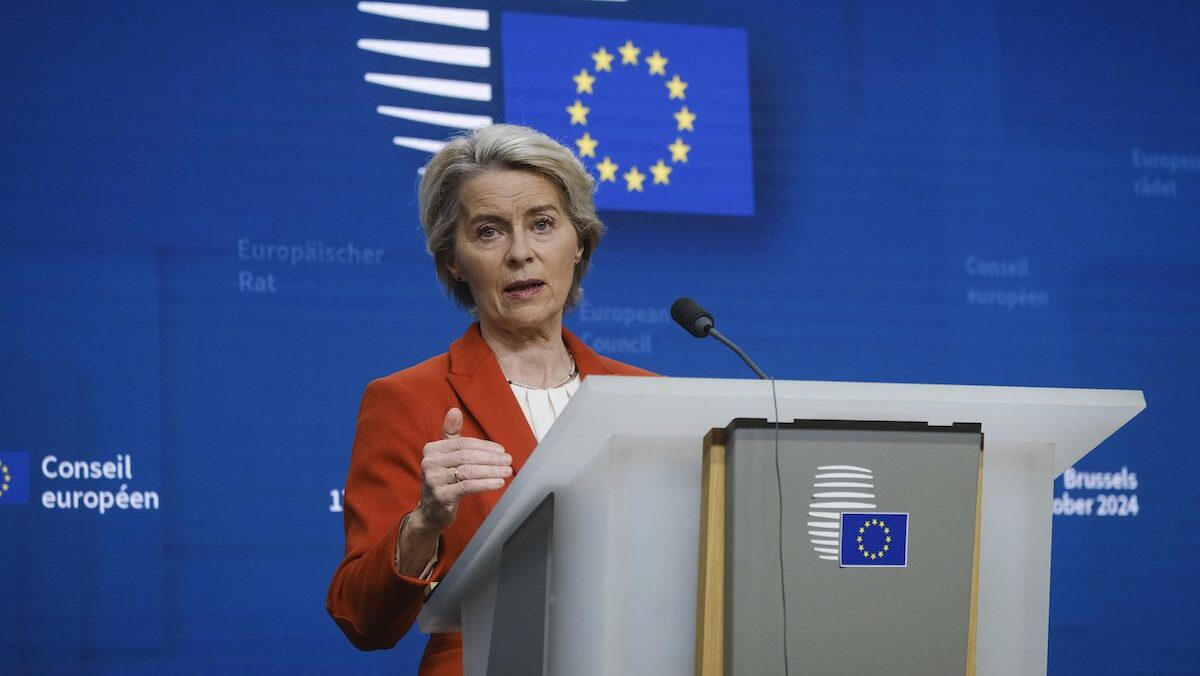
EU Commission President Ursula von der Leyen.
Photo: European Council, October 2024
In a letter sent to the member states ahead of this week’s European Council summit, EU Commission President Ursula von der Leyen laid out her operational and legislative agenda on migration for the next three months, with a particular focus on streamlining deportations with her new ‘Returns Directive,’ designed in line with member state expectations expressed at the previous summit in October.
The Commission president reinforced her claimed commitment to speeding up the deportation of illegal migrants by slashing red tape and increasing the operational capacity of Frontex (the EU’s border control agency) and to “innovative” solutions such as establishing “return hubs” (i.e., deportation centers) outside of EU territory, based on the model established by Italy’s ‘Albania-protocol.’
The letter states that the Commission intends to split the legislation into two parts: the first focuses on finding a common approach and fixing the issues brought up by member states, while the second will establish a protocol for digitalizing the EU’s returns management system.
The majority of EU member states have been pushing for a tougher stance on migration ever since the Migration Pact was adopted earlier this year.
Although the flagship legislative package was supposed to solve all the problems, EU countries realized immediately upon adoption that it fundamentally failed to address key issues—something conservative groups have been saying all along—such as the lack of effective external border controls and the inability to carry out returns or preventing secondary movements within the Schengen area.
The Commission’s Returns Directive, therefore, is meant as a complementary piece of legislation to the Migration Pact—and not the first step toward replacing the package entirely, which is what the Patriots, the EU Parliament’s third-largest group, have been strongly pushing for recently.
In her letter, von der Leyen stressed that beginning to implement the Migration Pact is another “top priority” for the Commission for the coming months, even though it’s not supposed to enter into force until 2026. Nonetheless, von der Leyen highlighted several key areas of cooperation for early implementation, most dealing with the same issues that need to be updated through the Returns Directive.
By insisting on urgent implementation, it seems the Commission would like to prevent governments from siding with the Patriots and deciding to ditch the Migration Pact to start over from scratch. However, the idea of an early roll-out of certain provisions was already shown to be quite controversial during the previous summit, and several member states even refused to send back their ‘implementation roadmap’ required by the Commission by a December 12th deadline.
Before the previous EUCO, some leaders held an informal ‘pre-summit’ meeting organized by Italy, Denmark, and the Netherlands, dedicated solely to migration and finding a common approach. It was also attended by leaders from Austria, Cyprus, Poland, the Czech Republic, Greece, Hungary, Malta, and Slovakia. According to media reports, the same group is expected to convene again to discuss von der Leyen’s proposals before the Thursday summit.
Item no. 2 before the #EUCO : preparation for the #migration debate. More and more leaders recognise that there is a migration crisis in Europe. Meanwhile Hungary is punished for defending the borders of the EU. This is unacceptable! pic.twitter.com/kCkR8Rj7FH
— Orbán Viktor (@PM_ViktorOrban) October 17, 2024
